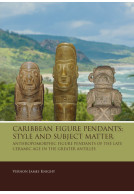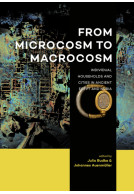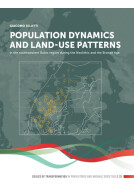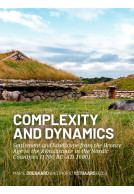Built Environments, Constructed Societies (Paperback)
Imprint: Sidestone Press
Pages: 192
ISBN: 9789088900389
Published: 22nd December 2009
Script Academic & Professional
Pages: 192
ISBN: 9789088900389
Published: 22nd December 2009
Script Academic & Professional
You'll be £30.00 closer to your next £10.00 credit when you purchase Built Environments, Constructed Societies. What's this?
+£4.99 UK Delivery or free UK delivery if order is over £40
(click here for international delivery rates)
Order within the next 2 hours, 35 minutes to get your order processed the next working day!
Need a currency converter? Check XE.com for live rates
(click here for international delivery rates)
Order within the next 2 hours, 35 minutes to get your order processed the next working day!
Need a currency converter? Check XE.com for live rates
Archaeology, as the discipline that searches to explain the development of society by means of material remains, has been avoiding the big issues involved with its research agenda. The topic of social evolution is concealed by anxiety about previous paradigmatic malpractice and the primary archaeological division of the world in culture areas still suffers from the archaic methods by which it was established. Archaeological inference of developing societies is weighed down by its choice of particularism within agency approaches and overtly reductionist due to the prevalence of statistical, classificatory and biological approaches. This book addresses these issues through a perspective on the spatial analysis of the built environment. As one of the principal properties of our dataset, as well as being the first materialisation of sociality, such spatialities are suggested to be a fundamental key for enabling an understanding of the developing social identity of places, regions and areas. In order to arrive at a truly social inference of spatial datasets, archaeology's usual analysis working from material remains towards socio-cultural interpretations needs to be inverted. The vantage point of this study consists of aprioristic social theory. It constructs its arguments through an epistemological foundation comprising a selection of essential ideas regarding the three constitutive axes of developing societies: time, human action and human space. As it recognises the inherent position of these axes combined in the discipline of human geography, a historical comparison of these two disciplines presents the angle from which plausible theoretical advancements can be made. The core of the book explores selected works of human geographers Allan Pred, Benno Werlen and Andreas Koch against the backdrop of theories like structuration or systems theory, phenomenology, action theory, and to a lesser extent Actor Network Theory and autopoiesis. From this follows its own theoretical proposal called the social positioning of spatialities. On this basis hypotheses for methodological opportunities are discussed, establishing a research agenda. Firmly placing its efforts in current paradigmatic debates in the discipline, this study offers archaeological theorists an incentive to leave the safety of materially bound science and adapt an alternative perspective. It is an attempt to put archaeology back in the forefront of the social theoretical debates it should contribute to.
Other titles in Sidestone Press...















